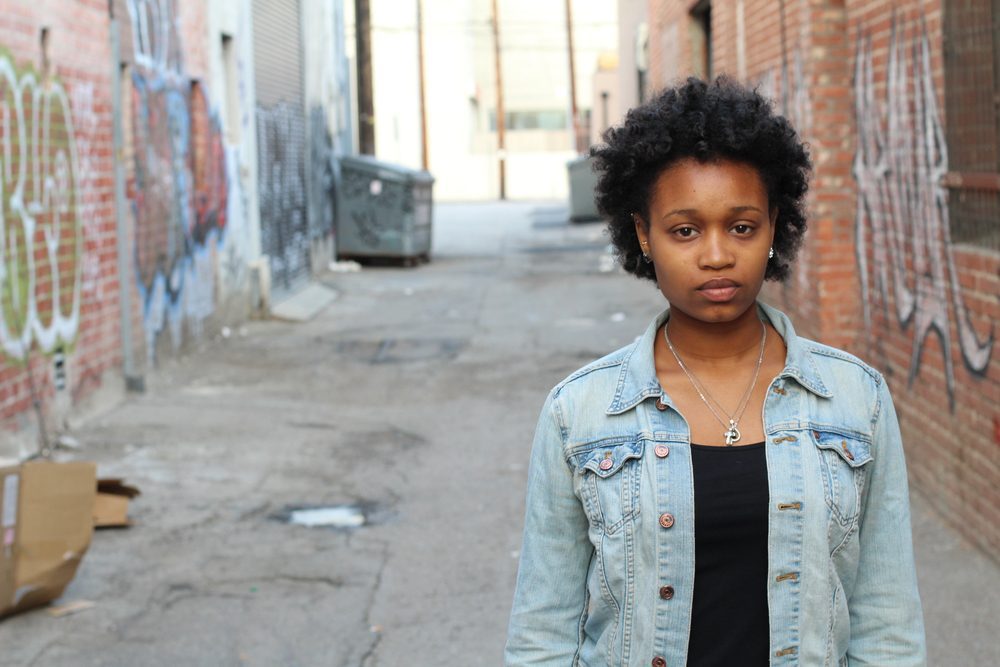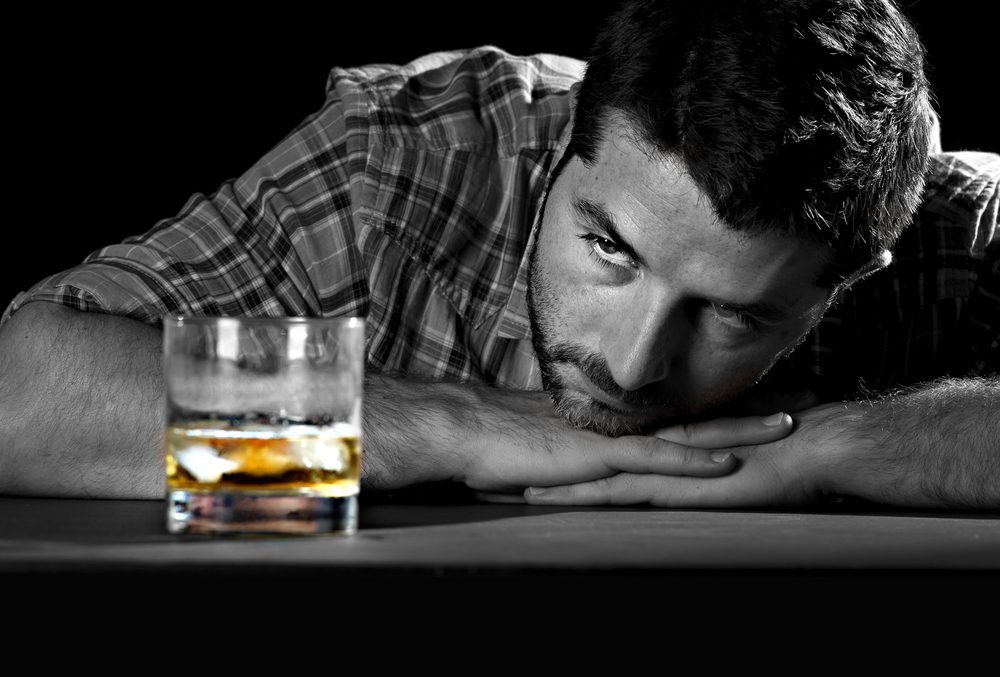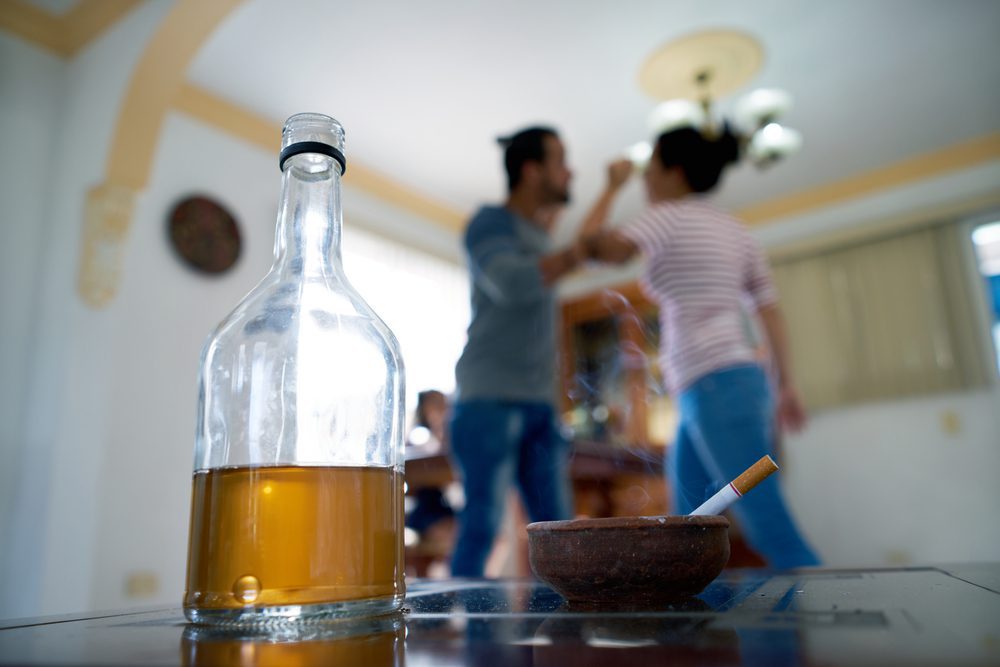Reporter’s notebook: Addiction and domestic violence
Domestic violence and addiction are undeniably connected. Nearly in 1 in 5 women and 1 in 7 men have experienced severe violence from an intimate partner during their lives. In so many of these cases, substance abuse plays a driving role in the abusive behavior.
Often times, this creates a downward spiral of more emotional abuse, more addiction and more acts of violence. In this guide, let’s examine the relationship between these two forces and the steps you can take to find help for yourself or a loved one.
What is domestic violence?
Domestic violence, also referred to as intimate partner violence, is tragically common around the globe. It involves unhealthy relationships where one or both people in a relationship emotionally and/or physically abuse the other.
These behaviors manifest in a variety of ways. They can include power imbalances and a lack of respect as well as a lack of empathy. Domestic violence is such a large problem that it is the single leading cause of injury to women in the United States. However, victims are not always women. Victims can be men, children, parents, animals and even elderly relatives.
Is substance abuse a cause of domestic violence?
In a 2010 National Institute of Health Study, researchers found that 61% of domestic violence offenders were substance abusers. They also found that over 50% of spousal murder cases involved alcohol or drug use the day of the crime.
In a study from the U.S. Department of Justice, 92% of domestic violence offenders were under the influence of drugs or alcohol. In more than half of all cases, offenders had used drugs or alcohol every day for the previous month before the incident.
Take your first step towards recovery.
The statistical link between domestic violence and drug addiction is clear and well-documented. Routine substance abuse is one of the highest leading risk factors of intimate partner violence. Substance abuse also leads to more severe cases of domestic violence.
Drug abuse leads to higher likelihood of abuse
Evidence suggests that drug abuse results in a much higher likelihood of domestic abuse. This becomes even more problematic: 42% of victims in studies also reported using drugs or alcohol the day of the assault.
Newer studies have shown a tendency for victims to be unable to recognize the warning signs of an imminent violent situation because of substance abuse. More troublesome is that victims of domestic assault with drug addictions are afraid of repeat violence. Oftentimes, this fear leads them to leave an abusive relationship which can ultimately result in the victim’s death.
Victims of intimate partner violence are more likely to develop patterns of unhealthy behavior that may only further substance abuse. These may include emotional and mental health issues like:
- anxiety
- depression
- suicidal thoughts
- insomnia
- lower self-esteem
- weight gain or loss
- post-traumatic stress disorder

Not just illegal drugs and alcohol
The United States is currently in the grips of a widespread opioid epidemic. Many patients need opioids to manage their pain.
However, their highly addictive properties have led many people to develop substance abuse problems. You may associate substance abuse and domestic violence with illegal drugs, but prescription drugs are known to incite violent tendencies as well.
Opioids and amphetamines are the most commonly associated prescription drugs with violence. But other medicines commonly considered safe have also been linked to violent behavior.
For example, the antidepressant Prozac has been linked with a 10.9 times greater likelihood of violence. More serious is the drug Chantix, a popular option for those looking to quit smoking cigarettes. This drug is associated with a nearly twentyfold increased likelihood of violent behavior.
Substance abuse isn’t the only factor
While drug and alcohol addiction may be common in domestic abuse cases, experts advise that it is not only the cause of violence. Treating substance abuse problems is essential, but it will not cure underlying violent tendencies.
Many offenders were victims or witnessed abuse during their childhood. This, in turn, makes them more likely to abuse drugs and alcohol, which can play a significant role in awakening latent tendencies.
Likewise, many victims of domestic violence often turn to substance abuse as a coping mechanism. This creates a dangerous cycle of both physical and substance abuse that carries across generations.
Symptoms of abuse may not appear immediately. Many victims often cope in silence, self-medicating with drugs and alcohol. Ultimately, both victims and offenders should seek treatment such as substance abuse counseling.

For offenders, it’s important to receive more comprehensive treatment programs. These not only cover addiction but also other issues such as anger management and counseling. The goal of this therapy is to create healthy outlets so that offenders can channel their energy appropriately.
What are the warning signs of domestic abuse?
Many people are unaware that they are in an abusive relationship. Or they may miss early warning signs of problematic future behavior.
For abusers, it’s all about power and control that can lead to physical violence and other unhealthy behaviors. There are many types of domestic abuse that can be broken down into 5 main categories:
If you partner bullies you, you may see the following behaviors:
- blames you for their abuse
- accuses you of having an affair
- tells you how you look and what to wear
- criticizes you
- throws things or punches the wall/inanimate objects
- threatens you or a loved one
- yells at you
If a partner controls your money, you may see the following behaviors:
- makes you explain every expense
- prevents you from working where you want
- keeps you away from cash and credit cards
- steals your money
- won’t give you money for basic necessities
If a partner keeps you away from loved ones, you may see the following behaviors:
- always wants to know who you are with and where you are
- makes you ask permission to see friends and family
- embarrasses you in front of other people so you don’t want to see anyone
If a partner is physically abusive, you may see the following behaviors:
- punches, kicks assaults you in any way
- locks you in or out of your home
- abandons you in an unfamiliar place
- prevents you from eating, sleeping or receiving medical care
- uses weapons against you
If a partner sexually abuses you, you may see the following behaviors:
- forces you to have sex
- makes you wear clothing your uncomfortable with
- doesn’t use condoms or other forms of birth control
- tries to give you an STD
- makes you feel like you owe sex

These are just some of the signs of an abusive partner. If you suspect you are a victim of domestic violence, please seek help right away. Or if you have a partner who abuses drugs and is trying to persuade or force you to as well, make a plan to get away from him/her as quickly as possible.
Do note that many of these behaviors gradually manifest over time. Watch out for early warning signs that may indicate more serious domestic violence down the road.
Recognizing signs of domestic abuse in others
As a friend or family member, it may be up to you to recognize signs of abuse and substance use disorder. Both victims and offenders may hide substance abuse and intimate partner violence. Many victims may be afraid to discuss what’s happening. They may fear consequences such as even more violence against them.
Some of the warning signs of abuse to be aware of include:
- sudden changes in personality or behavior
- excuses for injuries
- never having money or needing to borrow money regularly
- missing school, work or social events for no real reason
- clothing that doesn’t match the season (e.g. wearing long sleeves that can cover bruises)
- always making sure something is acceptable with their partner
Many of these signs can be symptomatic of drug abuse as well. If you’ve noticed any changes like these with one of your family members or friends, be sure to seek help right away.
The connection is clear
When it comes to the link between domestic violence and addiction, there are many complex and overlapping features to consider. Detox and substance abuse counseling are important first steps. However, it’s also important for both offenders and victims to seek counseling for emotional abuse. This can help them manage mental health issues associated with abuse.
Likewise, they may need to examine the roots of their drug-seeking behavior and eliminate triggers that may cause unhealthy behaviors. Only by finding the right treatment program will they be able to escape the vicious cycle of addiction and domestic violence and begin having healthy relationships and lives.
We can help you
At The Blackberry Center, you will have the opportunity to begin the journey to lifelong recovery in our state-of-the-art facilities.
If you or one of your loved ones is struggling with addiction, we can help. We use a personalized approach to addiction treatment. Our focus is on treating the disease, not the symptoms. We put our patients first every step of the way.
Our treatment program includes crisis care services, an outpatient, partial hospitalization program and other personalized health care options. Our on-site rehab programs focus on a comprehensive recovery approach. They address your physical, mental and spiritual needs for optimal wellness. Your needs are unique. We treat you as such.
Reach out for help today
You may be struggling with long-term addiction. Or you may be fighting strong temptations. We can meet you where you are in your fight for sobriety.
We welcome you to our treatment center. From support groups to individual therapy treatment options, we are here to fight the battle with you.
Reach out to us online today. You can also call us at 888-512-9802.

